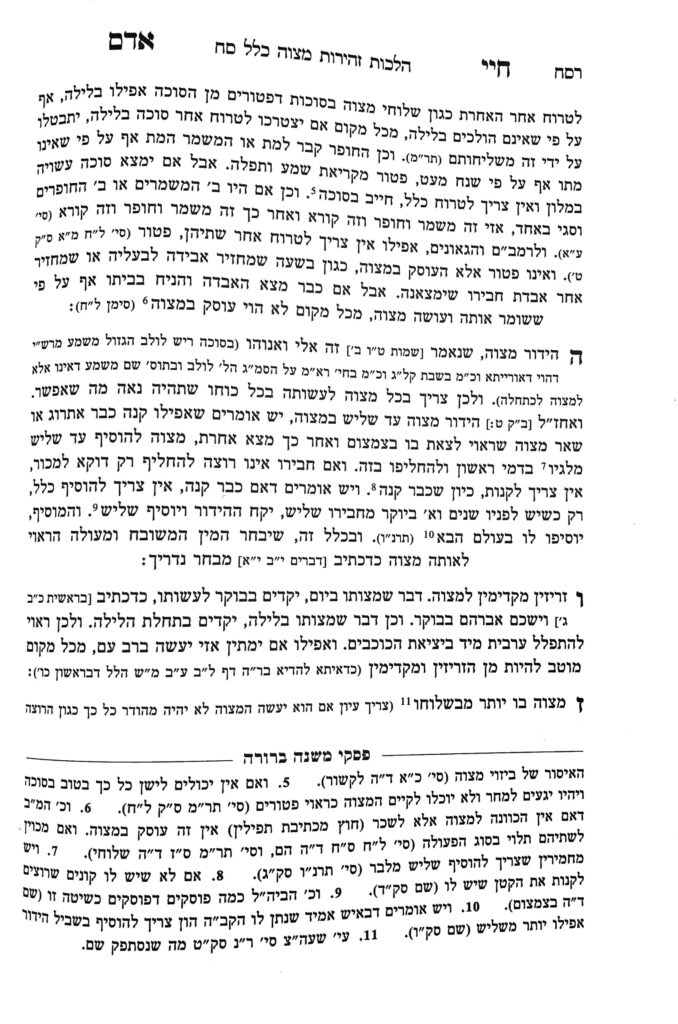We are continuing in siman 6, regarding the concept of zrizin makdimin. Today, we will discuss scenarios where zrizin makdimin is not only an expression of hiddur mitzvah, but an intrinsic component of the mitzvah itself.
The first example is sefiras haomer. The Torah describes sefiras haomer as temimos, whole. One explanation is that one must count all 49 days, so when one misses a day their counting is no longer whole. Since we are concerned for this opinion, if one misses a night, they no longer count with a bracha.
Another opinion is that each day must be tamim, complete, in the sense that one should count at the beginning of the night so that the entire “day” (i.e., 24 hour period) has been counted. This opinion holds that if one were to count in the morning, they missed the mitzvah, because they have only counted part of the day. The achronim bring down that according to this opinion, one should count as early as possible in the night, so that their “day” (24 hour period) is more tamim. In this case, zrizin makdimin is not just a hiddur, but an intrinsic part of the mitzvah, because the earlier one counts the more of the day they have included in their count.
Another example is kiddush on Friday night. The Rambam, in discussing the mitzvah of kiddush, writes that the mitzvah is to speak the praises of Shabbos when it enters. If a person recites kiddush later in the evening, they are yotzei, but the added hiddur of reciting kiddush as Shabbos enters is lost. In this case as well, zrizin makdimin is not just a hiddur, but an intrinsic component to fulfilling zachor es yom hashabbos lekadesho, because the earlier one recites kiddush, the more of Shabbos they are praising.
Another example is the mitzvah of bedikas chometz. The Mishnah at the beginning of Maseches Pesachim states that bedikas chometz should begin ohr le’arba’ah asar, and the Gemara explains that ohr is the Mishnah’s euphemistic way of referring to the evening; in other words, that bedikas chometz should begin immediately at nightfall. The Baal Hamaor asks why the Mishnah chose to use a term which could be misconstrued, rather than use a term which would be clear. He answers that the Mishnah is teaching us that Chazal did not want a person to delay in fulfilling this mitzvah, and wanted that a person should begin at the beginning of the night. Therefore, Chazal use the term ohr to indicate that there should still be a little light outside when one begins, because one should begin exactly at nightfall (where some light from the sun is still visible). According to the Baal Hamaor, in this mitzvah as well, zrizin makdimin is not just a hiddur, but an inherent component of the mitzvah.
Some suggest that kriyas shema at night is another example of this idea, in that beyond the concept of zrizin makdimin, an intrinsic part of the mitzvah is to accept ol malchus shamayim on as much of the night as possible.
Summary
Although zrizin makdimin is generally a hiddur, there are mitzvos in which zrizin makdimin is an intrinsic component of the mitzvah, such as sefiras haomer, kiddush, bedikas chometz, and possibly kriyas shema.



